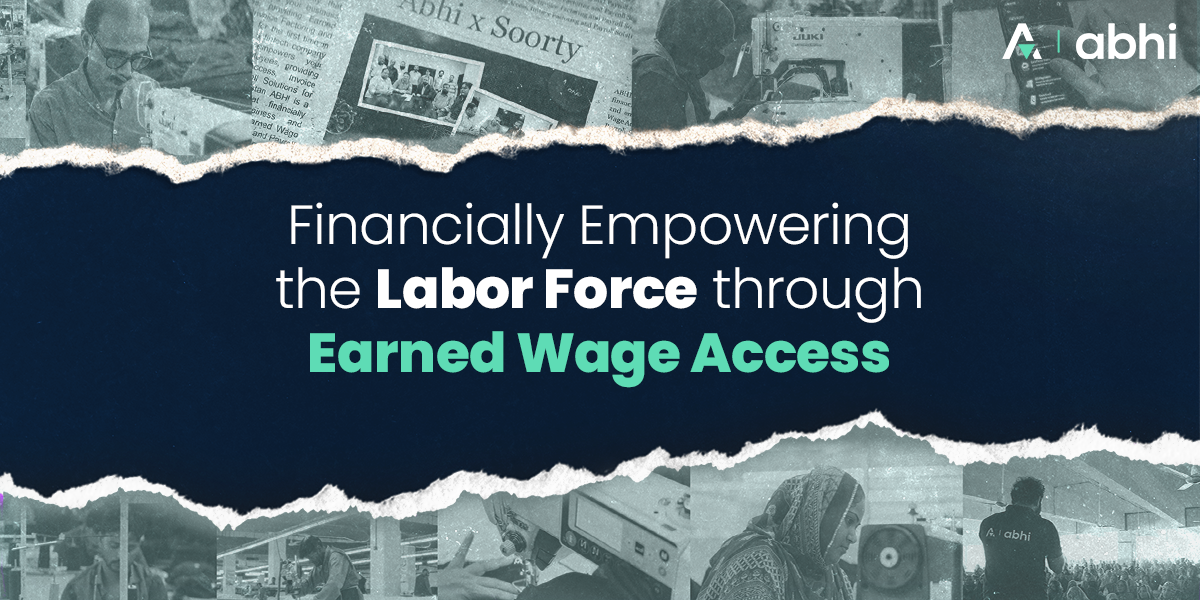ABHI is Financially Empowering the Labor Force through Earned Wage Access

The fifth most populous country in the world, with a population of more than 240 million, Pakistan has an employed labor force of nearly 70 million people contributing to the country’s economic development. This workforce, comprising 42.1% of the population, plays a pivotal role in driving the nation’s economic development and social well-being. Notably, the male-female disparity in labor force participation is stark, with men contributing 64.1% compared to women’s 19.4% (Labor Force Survey 2020-21). These statistics showcase that the labor force plays a vital role in the country’s economic development.
However, despite being the backbone of the economy, many workers face significant financial challenges. With a minimum wage of 32,000 PKR per month, it is increasingly difficult for the working class to meet their basic needs. In May 2023, with inflation soaring to an alarming high of 37.97%, financial stress became an inescapable part of everyday life for many. From unexpected bills to the burden of school fees, the economic pressure has extended well beyond the boundaries of bank accounts, penetrating various aspects of an individual’s health and well-being.
In response to these challenges, the need to empower employees financially took a rise. ABHI, an embedded finance platform, pioneered the concept of Earned Wage Access (EWA) in Pakistan in 2021, empowering over 250,000 employees financially to date. Through EWA, employees gain the freedom to access their hard-earned salary anytime, anywhere, providing them the financial flexibility. With an average salary of 76,900 PKR per month for half of the population in Pakistan, EWA is an invaluable tool in promoting employee wellness and financial stability.
Since 2021, ABHI has partnered with 550+ companies, including industry leaders like Unilever, Soorty Enterprises, and Martin Dow, to work on solving the financial issues of the employees. Through these collaborations, there is a glimmer of hope for millions of people who are determined to take control of their finances. When employees gain control over their finances, they experience reduced stress and improved health, leading to increased focus, productivity, and contentment, both personally and professionally.
In conclusion, the labor force in Pakistan stands as a cornerstone of the nation’s economic growth and societal well-being. However, amidst the backdrop of pressing financial challenges, the need to empower employees financially has never been more critical. As employees gain autonomy over their finances through Earned Wage Access, the ripple effects are profound, reducing stress levels, enhancing well-being, and improving productivity.